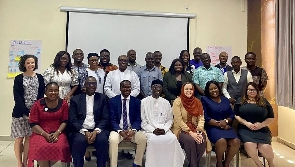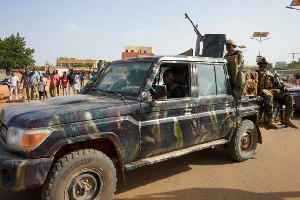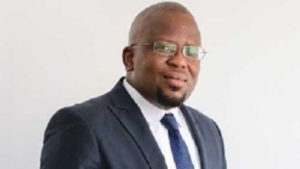The Government has been urged to prioritise the building of the economic resilience of communities and individuals as part of its peace-building activities.
This should be done through the provision of social amenities and opportunities to enhance citizens’ relevance and participation in society.
The recommendation was made on Tuesday during a dissemination workshop on findings from the Action Research on intergenerational, inter-religious peace-building in Northern Ghana, in Accra.
The research was carried out by the Catholic Relief Services (CRS) with support from the United States Institute of Peace (USIP) and the Centre for Conflict Transformation and Peace Studies (CECOTAPS).
The workshop had participants from Religious groups, Ministries, Departments and Development partners.
Patrick Williams, Regional Programs Manager, CRS, in presenting the research findings, urged stakeholders to strengthen the capacity of youth and Muslim community leaders to engage directly with the youth to counter the malign influences of misinformation and violent extremists.
He said they should also actively identify and engage vulnerable people traditionally left out of the peace-building process.
The report suggested that peace builders scaled-up interreligious and intergenerational activities to build coalitions around common identities and objectives by engaging more fully with secular organisations such as vocational training programmes.
They were advised to foster cross-border cooperation and activities to better respond to the risks of extremism expansion.
He said Government could win over the trust of citizens by being present at the grassroots, listening to their concerns and addressing them.
Williams said the US Government would foster deeper collaboration and support Ghana to incorporate the research findings into future policies.
Daniel Mumuni, Country Representative, CRS Ghana, said the overarching goal of the research was to expand learning, improve practice, and document lessons in intergenerational and interreligious peacebuilding in Northern Ghana.
He said the National Catholic Secretariat was currently leading the implementation of the second phase of the Sahel Peace Initiative, to restore community life and peace.
The initiative, he said, would focus on four core priorities: Dialogue and Mediation, Humanitarian Needs, Advocacy and Community Based Support.
Mr Mumuni said Ghana’s identity as a highly religious country with intergenerational differences, could contribute both negatively and positively to peace-building efforts.
“It all depends on how we can effectively harness the potential and strengths of our peacebuilding efforts while improving upon the gaps or weaknesses,” he added.
Madam Palwasha Kakar, Director of Religion and Inclusive Society, USIP, said peace and stability could not happen without the full participation of the youth in the country’s political, social, cultural and economic affairs.
She said the research was important to USIP because it focused on ways to break down barriers to youth participation in peacebuilding beyond working with the youth in silos and bringing them concretely into the dialogue process.
Madam Kakar said the inclusion of women and youth was an intrinsic part of sustainable peace, adding that, the exclusion could increase fragility and contribute to violent conflict.
She noted that the youth were often the most vulnerable and affected by violent conflict globally, and yet, they were excluded from peacebuilding efforts.
Madam Kakar said the engagement of religious actors, youth leaders, and religious youth in peace dialogues and joint activities would bridge community divides and foster sustainable peace.
She commended CRS for the research and said the USIP was interested in gaining a better understanding and learning the intergenerational module of dialogue from Ghana.
Sheikh Aremeyaw Shaibu, the spokesperson for the National Chief Imam, observed that most conflicts were influenced by economic factors and the inequitable distribution of resources within communities.
He said the notable feature of such conflict-prone areas were poverty, deprivation, marginalisation and idleness, which allowed terrorist groups to easily engage them to do their bidding.
Sheikh Shaibu said if people in such communities were “fruitfully engaged” and provided with social amenities and economic opportunities, they would not have the motivation to partake in violent acts.
He urged stakeholders to build partnerships around common challenges and collectively pursue solutions for them.
Health News of Wednesday, 8 February 2023
Source: GNA













